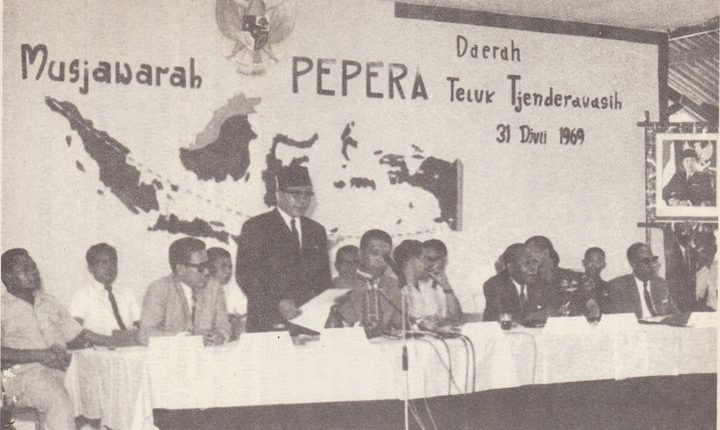International Public Admits Papuan Part of Indonesia
By: Rebecca Marian) *
The overall legal status of Papua has been recognized by de facto and de jure. Papua is an integral part of the Unitary Republic of Indonesia which has been legally and internationally recognized.
Back to the case of disintegration that was launched by the separatist elements last week. Which is not yet an understanding of the position of Papua as an integral part of the Republic of Indonesia. The separatist elements assess that all evidence of validity needs to be reviewed. Even though most of the people of Papua have recognized the sovereignty of the Republic of Indonesia as their homeland.
Judging from the indications of the objective of the separatist elements, it seems to have a deflection. Not only the independence they are looking for, there is a possibility they have other goals. It is unfortunate if the peace of Papua is disturbed by such irresponsible elements. They are keen to incite and provoke that Papuans also fall into it. The implication is the use of issues to achieve their desired goals.
A glimpse of the determination of the status of the western part of Papua in 1969, which is now the provinces of Papua and West Papua. Then a meeting of the Act of Free Choice was held, or commonly called the Act of Free Choice. Which is essentially a plebiscite or a referendum.
Under the New York Agreement, the Act is intended to find out the preferences of the people of West Irian. The link is whether they want independence or if they want to join the Republic of Indonesia. What is surprising is that the results of the referendum apparently concluded that the people chose to unite with Indonesia. While these results have been received by the United Nations (United Nations).
Before the end of 1969, according to the New York Agreement Indonesia was obliged to implement the Act of Free Choice in West Irian. On the basis of this agreement in early 1969, the Indonesian government began to carry out this meeting into three stages. The details are as follows;
As of March 24, 1969, a consultation was held with the Regency Council in Jayapura regarding the implementation of the Act of Free Choice.
An election for the Council of Deliberations, which ended in June 1969, was held.
The implementation of the Act of Free Choice, will begin from Merauke Regency and end on August 4, 1969 in the Jayapura region.
The holding of the Pepera meeting was witnessed by the UN delegation, Australia and a delegation from the Netherlands. The Pepera results show that the people of West Irian want to join the Indonesian territory.
The results of the Act were then taken to the UN General Assembly. Precisely around November 19, 1969, the General Assembly of the United Nations accepted and agreed to the results of the Act. On this basis it is also stipulated that the joining of West Irian which is known as Papua and West Papua into the Unitary Republic of Indonesia has been legally and internationally recognized.
In addition, of course, the results of this Act were also considered final, because they have covered various aspects. Related to the person who wants the disintegration of Papua from the Republic of Indonesia, this seems to be just making it up. On the other hand, the number of Papuan independence defenders fronts is only a handful of people. So how could this decision be in the name of all the people of Papua, right?
Moreover, many Papuans declare themselves inseparable parts of the Republic of Indonesia. From this we can conclude if the Papuan community is only used as a tool in the name of Struggle. Which is the fact that the people of Papua have gained independence here in Indonesia. The good news is that Papuans finally realize that they have only been cheated by irresponsible people.
On the other hand, this separatist figure assesses if the government has ruled out the welfare distribution process in Papua. In fact, the development of Papua’s land infrastructure development has accelerated, the economic system has become stronger, the health and education sectors which are considered vital have been achieved according to plan. Then, what else should be fussed about? In fact, the government plans to diligently carry out continued development as a form of optimization of welfare distribution.
Therefore, there shouldn’t be anything more to question. Yet Papuans claim to have lived a safe, peaceful life by utilizing the natural resources of the earth of Paradise. Which is complemented by developments provided by the government.
So that there are no more opportunities for perpetrators or suspected separatists to instigate the implementation of disintegration, which is actually never wanted by the people of Papua. Because Papuans believe that Indonesians are flesh and blood biological mothers for Papua as a whole.
) * The writer is a Papuan student, living in Jakarta
